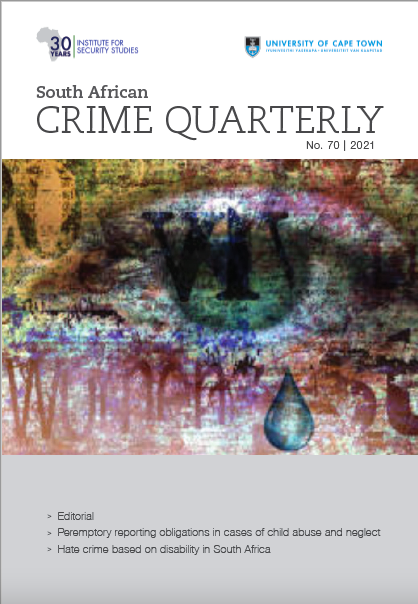Hate crime based on disability in South Africa: Lessons for law reform
DOI:
https://doi.org/10.17159/2413-3108/2021/i70a5597Abstract
When contemplating whether to introduce disability hate crime as a new substantive offence or as a penalty enhancement of existing crimes, legislators should consider the peculiarities of reporting, investigating and prosecuting hate crimes perpetrated against disabled people. This article argues that existing laws on sexual offences, domestic violence, harassment, and unfair discrimination should be strengthened, and research should be conducted to identify the appropriate initiatives to prevent and attend to disability hate crime by and with persons with disabilities. Creating a substantive hate crime based on disability has symbolic value, but should only be considered if the existing challenges to full and meaningful participation by persons with disabilities in investigative and court proceedings are addressed through appropriate procedural accommodations.
Downloads
Downloads
Published
Issue
Section
License
Copyright (c) 2021 Author and Institute for Security Studies/University of Cape Town

This work is licensed under a Creative Commons Attribution 4.0 International License.
SACQ is licenced under a creative commons licence (CC BY) that allows others to distribute, remix, tweak, and build upon your work, even commercially, as long a they give appropriate credit, provide a link to the license, and indicate if changes were made. They may do so in any reasonable manner, but not in any way that suggests the licensor endorses you or your use.
Copyright for articles published is vested equally between the author/s, the Institute for Security Studies and the Centre of Criminology (UCT).




.png)